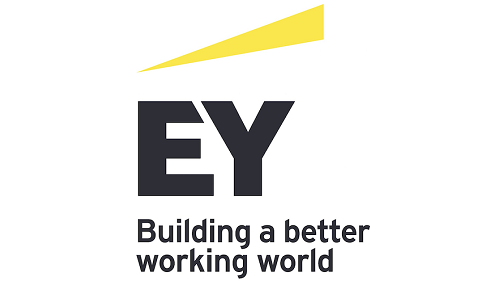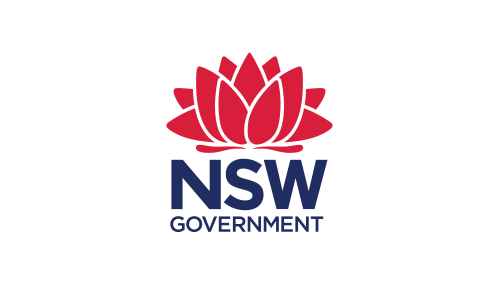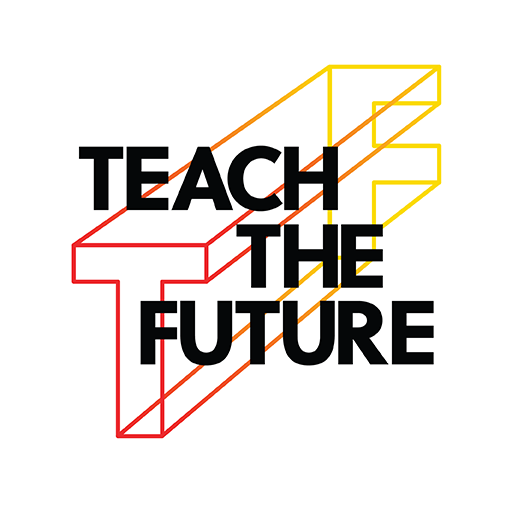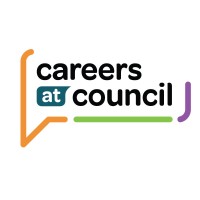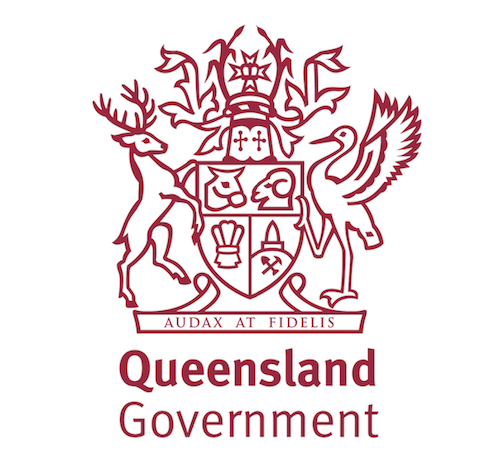Graduate Jobs
Available locations
- Melbourne - Eastern Suburbs
- Victoria
Accepts International
Are you a third-year teaching student or a recent teaching graduate looking for an exciting and rewarding teaching opportunity in Victoria? Commence your teaching career in a Victorian government school and you could be eligible for a financial incentive to help you start your teaching journey.
Graduate Jobs
Available locations
- Melbourne - Western Suburbs
- Victoria
Accepts International
Are you a third-year teaching student or a recent teaching graduate looking for an exciting and rewarding teaching opportunity in Victoria? Commence your teaching career in a Victorian government school and you could be eligible for a financial incentive to help you start your teaching journey.
Graduate Jobs
Available locations
- New South Wales
- Regional New South Wales
- Sydney
Hires applicants with degrees in
- Architecture
- Design and User Experience
- Industrial Design
- Project Management
Inner West Council Leichhardt, NSW
Graduate Jobs
Brisbane
Hires applicants with degrees in
- Accounting
- Business and Commerce
Are you passionate about the intricacies of Corporate Advisory, enthusiastic about the challenges and opportunities that come with a Graduate role, and eager to join an accomplished team to learn from seasoned professionals? If so, this is the opportunity for you!
Graduate Jobs
Essendon Fields
Are you passionate about technology and eager to shape the future of logistics? Look no further than the Linfox Graduate Program. As a Graduate, you’ll be at the forefront of innovation, working on cutting-edge IT projects that drive our business forward.
Graduate Jobs
Melbourne
Logistics isn’t just about trucks and warehouses – it impacts everyone, everywhere, every day. On the Linfox Graduate Program you’ll play a crucial role in keeping businesses running smoothly, economies thriving and people connected.
Graduate Jobs
Sydney
Logistics isn’t just about trucks and warehouses – it impacts everyone, everywhere, every day. On the Linfox Graduate Program you’ll play a crucial role in keeping businesses running smoothly, economies thriving and people connected.
Graduate Jobs
Brisbane
Use sophisticated technology to deliver everyday essentials and natural resources for Australia’s biggest companies. Work with major customers in retail, healthcare, government and defence. Shape the future of logistics with industry leading innovations in safety, efficiency and sustainability.
Graduate Jobs
Melbourne
Use sophisticated technology to deliver everyday essentials and natural resources for Australia’s biggest companies. Work with major customers in retail, healthcare, government and defence. Shape the future of logistics with industry leading innovations in safety, efficiency and sustainability.
Graduate Jobs
Perth
Use sophisticated technology to deliver everyday essentials and natural resources for Australia’s biggest companies. Work with major customers in retail, healthcare, government and defence. Shape the future of logistics with industry leading innovations in safety, efficiency and sustainability.
Graduate Jobs
Sydney
Use sophisticated technology to deliver everyday essentials and natural resources for Australia’s biggest companies. Work with major customers in retail, healthcare, government and defence. Shape the future of logistics with industry leading innovations in safety, efficiency and sustainability.
Graduate Jobs
Sydney
Hires applicants with degrees in
- Banking and Finance
- Property
Kick start your career with an ASX listed and one of Australia’s leading fully integrated real asset groups, managing a high-quality Australasian real estate and infrastructure portfolio valued at $57.1 billion!
Graduate Jobs
Brisbane
Have you recently graduated or are you graduating soon and interested in a career in policy? Applications for the 2025 Policy Futures Graduate Program are now open. The Policy Futures Graduate Program is your first step to a fulfilling career in Queensland Government.
Graduate Jobs
Brisbane
Have you recently graduated or are you graduating soon and interested in a career in policy? Applications for the 2025 Policy Futures Graduate Program are now open. The Policy Futures Graduate Program is your first step to a fulfilling career in Queensland Government.
Graduate Jobs
Brisbane
Have you recently graduated or are you graduating soon and interested in a career in policy? Applications for the 2025 Policy Futures Graduate Program are now open. The Policy Futures Graduate Program is your first step to a fulfilling career in Queensland Government.
Graduate Jobs
Brisbane
Have you recently graduated or are you graduating soon and interested in a career in policy? Applications for the 2025 Policy Futures Graduate Program are now open. The Policy Futures Graduate Program is your first step to a fulfilling career in Queensland Government.
Graduate Jobs
Brisbane
Have you recently graduated or are you graduating soon and interested in a career in policy? Applications for the 2025 Policy Futures Graduate Program are now open. The Policy Futures Graduate Program is your first step to a fulfilling career in Queensland Government.
Graduate Jobs
Brisbane
Hires applicants with degrees in
- Arts and Humanities
- Business and Commerce
- Economics
- Environment
- Government
- Law
- Logistics and Supply Chain
- Science
Have you recently graduated or are you graduating soon and interested in a career in policy? Applications for the 2025 Policy Futures Graduate Program are now open. The Policy Futures Graduate Program is your first step to a fulfilling career in Queensland Government.
Graduate Jobs
Brisbane
Have you recently graduated or are you graduating soon and interested in a career in policy? Applications for the 2025 Policy Futures Graduate Program are now open. The Policy Futures Graduate Program is your first step to a fulfilling career in Queensland Government.
Graduate Jobs
Brisbane
Have you recently graduated or are you graduating soon and interested in a career in policy? Applications for the 2025 Policy Futures Graduate Program are now open. The Policy Futures Graduate Program is your first step to a fulfilling career in Queensland Government.
Australian Graduate Jobs and Graduate Programs
What is the Difference between a Graduate Job and a Graduate Program?
When preparing to complete tertiary education, a career-minded student will plan for and seek out opportunities for graduate employment. While “graduate jobs” and “graduate programs” sound similar, they differ in structure, purpose and size of organisation.
Graduate Jobs
Graduate jobs (or entry-level jobs) are open to and targeted towards university graduates. They occur in all industries, but since they are less structured than graduate programs, they are the main source of graduate employment in the small to medium business market. With these jobs, graduates are hired to perform a role at a full-time, part-time, casual or contracting basis. Common titles for graduate jobs include:
- Officer (as in “technical support officer” and “HR officer”)
- Executive” (as in “sales executive”)
- Representative (as in “customer service representative”)
- Assistant
- Administrator
- Co-ordinator
Entry-level jobs provide a vast employment pool for university graduates, with a large variety of positions and options to choose from. They provide practical experience in a variety of skills, and the chance to build a professional reputation, as well as the chance to decide exactly what direction to take career-wise.
Applying for a Graduate Job
Entry-level employers assess candidates’ relevant knowledge and experience, seeking proof of their ability to perform the job. The first indicator of an applicant’s suitability is their CV, which should include their academic achievements, work experience and extra-curricular activities.
When crafting your CV, it is important to not underestimate your abilities. Know your strengths, and match them to what the job requires. Usually a bachelor’s degree (with a Credit or Distinction average) is sufficient academic qualification for a graduate job.
Think creatively about your experiences. For example, part-time work yields not only technical skills, but teaches desirable “soft skills” like collaboration, time-management and leadership. Think about how this applies to your desired job. That said; do not over-sell yourself. Stretching the truth in a CV may get you an interview, but the lies will be exposed when it comes to performing the job.
Assuming your resume impresses the employer the next step will be an interview. Employees use interviews to gain a better understanding of their candidate’s knowledge and experience, critical thinking and creativity; and in particular their communication skills and organisational fit. Make sure you do some research into the company beforehand, and practice answering common interview questions so as to prepare yourself to speak with confidence. On the day; dress to impress (in business-attire). Answer all questions honestly. At the end you will be given the opportunity to ask the employer some questions yourself. Showing interest in the day-to-day running of the business, learning and development prospects of the job and future direction of the company helps to convince the employer that you have genuine enthusiasm for the job, and that you will fit in well with the organisation’s team.
Graduate Programs
Graduate programs differ from graduate jobs in that they are structured, often providing some formal education (like a professional certification, or a diploma) as well as guided training in the organisation, mentoring, and access to senior management. Graduate programs are usually full-time, and go for 12 months or more. They require significant investment in time and money, so only very large organisations (like big corporations and the government) can afford to offer them. Because of this substantial investment their entry requirements are very high, and only the best candidates will succeed in getting a position.
A graduate program grooms candidates for a future in leadership and senior management. Since they are a boost on the corporate ladder, they are in high demand among graduates. However, failing to get a position in a graduate program does not discount someone from having a successful career since that ultimately depends on work quality, communication, talent, leadership, teamwork and networking.
The most in-demand graduate programs are with large corporations like the Big Four accounting firms, Telstra and BHP Billiton. Jobs in accounting are the most sought-after, followed by consulting, IT, finance, policy making and engineering.
Features of Graduate Programs
- Learning and Development
Learning and Development is what sets a graduate program apart from an ordinary entry-level job. Organisations look to build upon and add to their employee’s existing skills base, and to that end they will conduct class-based learning and on-the-job training courses, both in the specifics of the work required and in “soft skills” like communication and team-building. They may host seminars and networking sessions, and bring in high-profile guest speakers to present on industry trends, motivation or leadership. Graduates will be guided through the learning and development program by a mentor or “buddy” as part of the program’s support system. After the graduate has completed the program, they will participate in ongoing organisation-wide professional development and training. - Rotational Programs
Many graduate programs in large organisations are rotational programs. Instead of spending a year in a single position, graduates are rotated around the various areas of the business every few months in order to gain a feel for the company and to gain experience in different types of work. Rotational programs are designed to help the graduate determine a position in which they will be able to add most value to the organisation, maximising both their enjoyment and productivity. - Possible Relocation
Over one-third of graduate programs require the successful candidate to relocate to another city, region or state. This high percentage is in part due to gaps between demand and supply for graduate jobs – for example regionally-based employers (such as some mining companies and manufacturers) are unable to find satisfactory candidates from the local market to fill their vacancies, so must recruit from cities or interstate. Other organisations are based solely in one location but recruit from all over Australia to find the best candidates. These include the Federal Government and the Defence Force. Although relocation is a significant (and challenging) step for a graduate to make, most employers ease the process by offering relocation assistance and support.
Applying for a Graduate Program
Although some graduate programs become available multiple times in a year, most organisations offering graduate programs open for applications in late February and early March, and close in April.
Improve your chances of securing a graduate position by applying for multiple programs. This strategy will help you learn more about the kinds of skills and experience organisations seek. In 2013, the average successful candidate submitted applications to different companies. However, this average is indicative of a wide spread – while 28% of successful applicants made over ten applications, 19% were successful with only a single application.
Relevant tertiary qualification is important, with most successful applicants to graduate programs having studied commerce (including accounting, economics, business management, finance and marketing), law, engineering or political science. Many large companies offer “generalist” recruitment programs, for which candidates from all disciplines are invited to apply, since a diverse knowledge-base is an asset.
Companies offering graduate programs seek applicants with high academic achievement, and to that end candidates with scholarships and prizes are at an advantage. 54% of successful applicants in 2013 had a scholarship, prize or some kind of financial support from an organisation. In addition, companies want evidence of leadership, self-motivation, dedication and initiative. Part-time work is a good indicator of these qualities, and is also a source of practical experience. 86% of graduates successfully hired to a graduate program had worked part-time at some point during university. Other extra-curricular activities common to successful candidates include volunteer work, vacation work/ internship, relevant industry work experience and participation in student societies.
Application to a graduate program typically involves multiple steps, such as completing an online application, undertaking a skills assessment, a telephone interview and a face-to-face interview. At each point the applicant is screened before progressing to the next level. Although the application process is long and complex, the companies design the stages as much as possible to enable the candidate’s best qualities to shine. The tests and interviews will be challenging, but interactive and enjoyable. Shortlisted candidates may be invited to networking events to meet more of the company staff, ask questions of previous graduates, and find out more of how the business works and whether the job is right for them.
Finally, if a candidate passes every stage of the application process, they will be sent a formal offer by letter, including the full commencement details. Typically there will be a wait of two and a half months between the start of an application and receipt of an offer, and successful candidates begin work between January and March the following year (with 56% of candidates beginning work in February).
Graduate Program Key Locations:
Graduate Program Key Industries:
